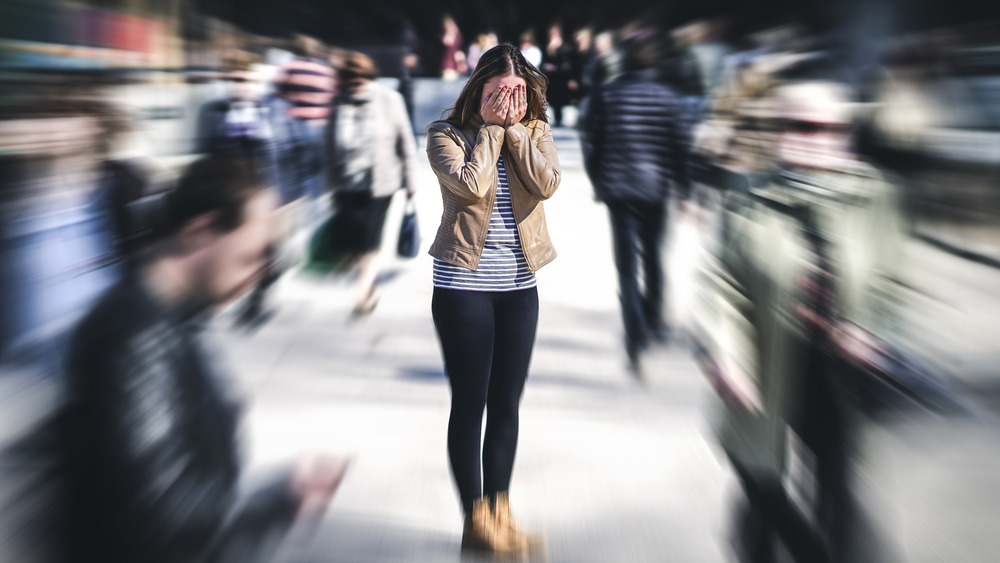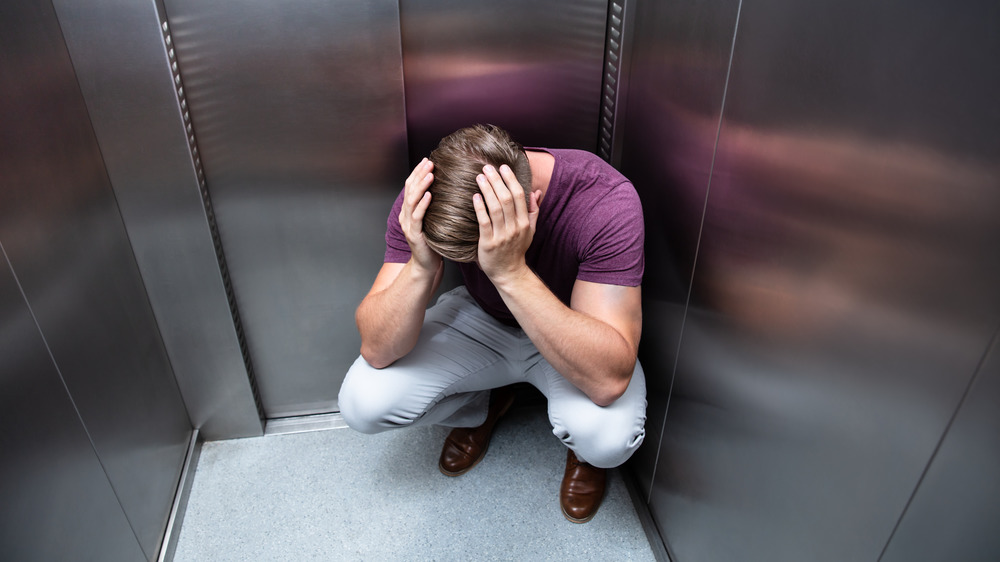What Is Panic Disorder?
Do you experience sudden bouts of intense fear that seem to come out of nowhere for no reason? Do you sweat, shake, have trouble breathing, and feel like you might die? You might be experiencing panic attacks. If you are always worried about having another one and often do, you might have panic disorder. About 2 to 3 percent of Americans have panic disorder, according to the Anxiety and Depression Association of America.
Panic disorder is a type of anxiety disorder where you experience recurring panic attacks and a constant worry of them happening again. A panic attack happens when your fight or flight response kicks in, but there is no imminent danger or threat to your life. You could be at home watching TV, shopping, or even sleeping.
If panic disorder is left untreated, it can be disabling by interfering with your daily life, work, or school. It can worsen into agoraphobia, where you find yourself never wanting to leave the house (via the National Institute of Mental Health [NIMH], MedlinePlus, and the Mayo Clinic).
What are the causes and symptoms of panic disorder?
Panic disorder most commonly shows up in someone in their teens or early 20s but can sometimes happen at a younger or older age, according to the NIMH. More women than men have panic disorder. Experts don't know what exactly causes panic disorder, but they do have some theories. It might run in families or come about after a significant life stressor.
It starts with a panic attack. You feel a sudden and intense feeling of fear that sets off four or more other symptoms — shaking, trouble breathing, tingling in your feet or hands, increased heart rate, sweating, turning pale, nausea, stomach pain or cramping, chest pain, dizziness, feeling too hot or too cold, weakness, feeling like something horrible is going to happen, or that you're going to die.
Many people have a panic attack without ever having another one, but people with panic disorder have recurring panic attacks. They might start to be afraid of places where they've had them and begin to avoid them, causing agoraphobia. That's why getting treatment as early as possible is so important.
What is the treatment for panic disorder?
You can get better with treatment. The first thing you need to do is talk to your doctor if you think you have panic disorder to get a referral to a psychologist or psychiatrist and get a proper diagnosis. Your doctor can also help rule out any other possible causes.
It's never too late to get help, but the earlier you catch it and seek treatment, the better. Panic disorder treatments are psychotherapy, cognitive behavioral therapy, and sometimes, prescription medications. Some people with panic disorder need a combination of all three.
Talk therapy can help you work through traumas and life stressors. Cognitive-behavioral therapy (CBT) will help you learn how to deal with panic attacks and other panic disorder symptoms. Other treatments are self-care related — limiting caffeine, avoiding alcohol, eating well, getting adequate sleep, meditating, journaling, exercising regularly, practicing belly breathing, and practicing mindfulness.



